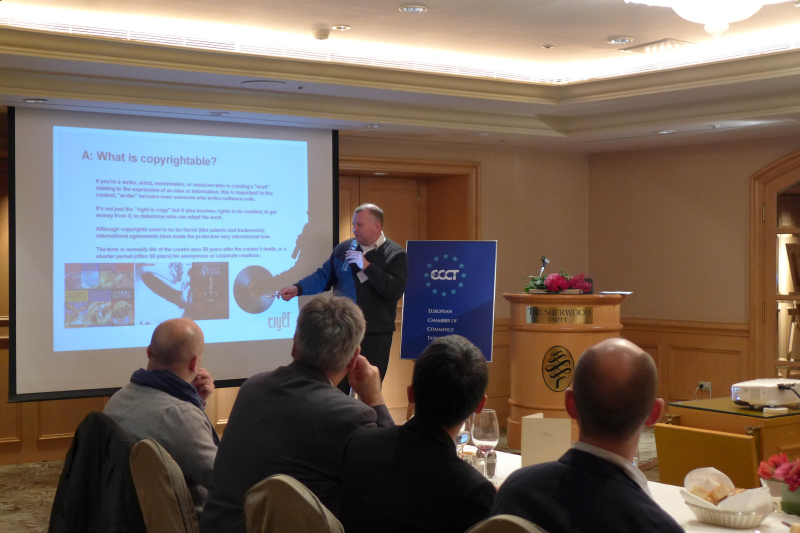IPR workshop on copyright law

Ideas on their own cannot be copyrighted. Only "work" relating to the expression of an idea or information can be copyrighted. An example cited by Eastwood is the original story of Romeo and Juliet, which had been told long before Shakespeare penned his famous play. Since then it has had several reincarnations in the form of poems, operas and films.
Copyright covers not just the "right to copy" but it also involves rights to be credited, to make money and to determine who can adapt a work. Although copyrights used to be territorial (like patents and trademarks), international agreements have made the protection very international thanks in part to the WTO's Trade-Related Aspects of Intellectual Property Rights (TRIPS) agreement.
The term of a typical copyright is normally the life of the creator plus 50 years after the creator's death, or a shorter period (often 50 years) for anonymous or corporate creations.
Exceptions to the exclusive rights granted under copyright law are granted for "fair use", which permits limited use of copyrighted material without getting permission from the rights holder. Examples include commentary, criticism, parody, news reporting, research, teaching, library archiving and scholarship. Managers need to be sure to understand the extent of fair use or risk legal action. If a work is being used for something of a "commercial nature" versus purely nonprofit educational use, you could face serious problems. For example, using a favourite song in a company video without permission could result in having to pay royalties as well as penalties. It is always better and cheaper to do things by the book and pay royalties in advance. Alternatively, if a particular type of music is required for a video, it might be easier and more cost effective to hire local musicians to play a similar type of music.
In Taiwan there are criminal law provisions of the Copyright Act that allow for the punishment of people who import, copy, display, perform or show to other people copyrighted works. Punishments can include fines and even prison terms but in practice most prison terms are commutable to fines. Taiwan's civil-law provisions of the Copyright Act allow for victims to try to collect damages from a party that has infringed the copyright. They can request a court injunction against the party continuing to use, sell, import or display the infringing works and can ask the court to award damages.
It is very difficult to go after infringers, especially in the digital age, and, given that most infringers are private individuals, it is often not worth the time and cost to go after them. A major impediment for rights holders in Taiwan taking action is that they cannot claim legal costs from offenders.
To protect their own intellectual property rights, companies should keep extensive records of their contracts with employees and contractors. They should make sure that there are clauses written into these contracts that clearly state who owns the work created by staff or contractors while engaged in work for the firm. Eastwood also advised firms to keep all copyrights under one entity even if a firm has several entities. Copyrights can be useful for other legal action. For example, a copyright can be useful when combined with a trademark, patent or trade secret as part of taking action.
Eastwood noted that it is commonplace for employees, with or without the knowledge of employers, to download illegal versions of software on company computers. Nowadays software firms have ways of discovering and tracking illegal use. Most software these days is very complex and not purely limited to running on a standalone computer. Many kinds of software can easily connect to the rights holder online and "tell on" your company. Most rights holders have a lot of information about the infringement. They know what software version was used, which computer used it, how many times the software was used, and even for how long it was used. He therefore warned managers to ensure that all computer software used by employees at work is legal.
On the cross-Strait IPR situation, Eastwood noted that IPR protection in China remains difficult. However, information gained from Taiwan sources about distribution channels, manufacturers and sellers can be very useful for regional anti-piracy efforts. Moreover, consistency in copyright documentation and ownership can be very useful in the cross-Strait context. Finally, it is important to get copyright registrations in the PRC and the US because online sales platforms will often want to see some proof in the form of a certificate to prove that you are the legitimate owner of a work before they will take down the links to pirated products.
